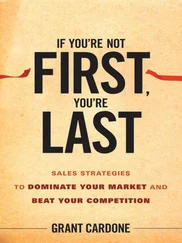Herbert Wells - First and Last Things
Здесь есть возможность читать онлайн «Herbert Wells - First and Last Things» весь текст электронной книги совершенно бесплатно (целиком полную версию без сокращений). В некоторых случаях можно слушать аудио, скачать через торрент в формате fb2 и присутствует краткое содержание. Год выпуска: 2003, Жанр: Философия, на английском языке. Описание произведения, (предисловие) а так же отзывы посетителей доступны на портале библиотеки ЛибКат.
- Название:First and Last Things
- Автор:
- Жанр:
- Год:2003
- ISBN:нет данных
- Рейтинг книги:5 / 5. Голосов: 1
-
Избранное:Добавить в избранное
- Отзывы:
-
Ваша оценка:
- 100
- 1
- 2
- 3
- 4
- 5
First and Last Things: краткое содержание, описание и аннотация
Предлагаем к чтению аннотацию, описание, краткое содержание или предисловие (зависит от того, что написал сам автор книги «First and Last Things»). Если вы не нашли необходимую информацию о книге — напишите в комментариях, мы постараемся отыскать её.
First and Last Things — читать онлайн бесплатно полную книгу (весь текст) целиком
Ниже представлен текст книги, разбитый по страницам. Система сохранения места последней прочитанной страницы, позволяет с удобством читать онлайн бесплатно книгу «First and Last Things», без необходимости каждый раз заново искать на чём Вы остановились. Поставьте закладку, и сможете в любой момент перейти на страницу, на которой закончили чтение.
Интервал:
Закладка:
The Mind of that Civilized State we seek to make by giving ourselves into its making, is evidently the central work before us. But while the writer, the publisher and printer, the bookseller and librarian and teacher and preacher, the investigator and experimenter, the reader and everyone who thinks, will be contributing themselves to this great organized mind and intention in the world, many sorts of specialized men will be more immediately concerned with parallel and more concrete aspects of the human synthesis. The medical worker and the medical investigator, for example, will be building up the body of a new generation, the body of the civilized state, and he will be doing all he can, not simply as an individual, but as a citizen, to ORGANIZE his services of cure and prevention, of hygiene and selection. A great and growing multitude of men will be working out the apparatus of the civilized state; the organizers of transit and housing, the engineers in their incessantly increasing variety, the miners and geologists estimating the world's resources in metals and minerals, the mechanical inventors perpetually economizing force. The scientific agriculturist again will be studying the food supply of the world as a whole, and how it may be increased and distributed and economized. And to the student of law comes the task of rephrasing his intricate and often quite beautiful science in relation to modern conceptions. All these and a hundred other aspects are integral to the wide project of Constructive Socialism as it shapes itself in my faith.
3.7.
WRONG WAYS OF LIVING.
When we lay down the proposition that it is one's duty to get one's living in some way not socially disadvantageous, and as far as possible by work that is contributory to the general well-being and development, when we state that one's surplus energies, after one's living is gained, must be devoted to experience, self-development and constructive work, it is clear we condemn by implication many modes of life that are followed to-day.
For example, it is manifest we condemn living in idleness or on non-productive sport, on the income derived from private property, and all sorts of ways of earning a living that cannot be shown to conduce to the constructive process. We condemn trading that is merely speculative, and in fact all trading and manufacture that is not a positive social service; we condemn living by gambling or by playing games for either stakes or pay. Much more do we condemn dishonest or fraudulent trading and every act of advertisement that is not punctiliously truthful. We must condemn too the taking of any income from the community that is neither earned nor conceded in the collective interest. But to this last point, and to certain issues arising out of it, I will return in the section next following this one.
And it follows evidently from our general propositions that every form of prostitution is a double sin, against one's individuality and against the species which we serve by the development of that individuality's preferences and idiosyncracies.
And by prostitution I mean not simply the act of a woman who sells for money, and against her thoughts and preferences, her smiles and endearments and the secret beauty and pleasure of her body, but the act of anyone who, to gain a living, suppresses himself, does things in a manner alien to himself and subserves aims and purposes with which he disagrees. The journalist who writes against his personal convictions, the solicitor who knowingly assists the schemes of rogues, the barrister who pits himself against what he perceives is justice and the right, the artist who does unbeautiful things or less beautiful things than he might, simply to please base employers, the craftsman who makes instruments for foolish uses or bad uses, the dealer who sells and pushes an article because it fits the customer's folly; all these are prostitutes of mind and soul if not of body, with no right to lift an eyebrow at the painted disasters of the streets.
3.8.
SOCIAL PARASITISM AND CONTEMPORARY INJUSTICES.
These broad principles about one's way of living are very simple; our minds move freely among them. But the real interest is with the individual case, and the individual case is almost always complicated by the fact that the existing social and economic system is based upon conditions that the growing collective intelligence condemns as unjust and undesirable, and that the constructive spirit in men now seeks to supersede. We have to live in a provisional State while we dream of and work for a better one.
The ideal life for the ordinary man in a civilized, that is to say a Socialist, State would be in public employment or in private enterprise aiming at public recognition. But in our present world only a small minority can have that direct and honourable relation of public service in the work they do; most of the important business of the community is done upon the older and more tortuous private ownership system, and the great mass of men in socially useful employment find themselves working only indirectly for the community and directly for the profit of a private owner, or they themselves are private owners. Every man who has any money put by in the bank, or any money invested, is a private owner, and in so far as he draws interest or profit from this investment he is a social parasite. It is in practice almost impossible to divest oneself of that parasitic quality however straightforward the general principle may be.
It is practically impossible for two equally valid sets of reasons. The first is that under existing conditions, saving and investment constitute the only way to rest and security in old age, to leisure, study and intellectual independence, to the safe upbringing of a family and the happiness of one's weaker dependents. These are things that should not be left for the individual to provide; in the civilized state, the state itself will insure every citizen against these anxieties that now make the study of the City Article almost a duty. To abandon saving and investment to-day, and to do so is of course to abandon all insurance, is to become a driven and uncertain worker, to risk one's personal freedom and culture and the upbringing and efficiency of one's children. It is to lower the standard of one's personal civilization, to think with less deliberation and less detachment, to fall away from that work of accumulating fine habits and beautiful and pleasant ways of living contributory to the coming State. And in the second place there is not only no return for such a sacrifice in anything won for Socialism, but for fine-thinking and living people to give up property is merely to let it pass into the hands of more egoistic possessors. Since at present things must be privately owned, it is better that they should be owned by people consciously working for social development and willing to use them to that end.
We have to live in the present system and under the conditions of the present system, while we work with all our power to change that system for a better one.
The case of Cadburys the cocoa and chocolate makers, and the practical slavery under the Portuguese of the East African negroes who grow the raw material for Messrs. Cadbury, is an illuminating one in this connection. The Cadburys, like the Rowntrees, are well known as an energetic and public-spirited family, their social and industrial experiments at Bournville and their general social and political activities are broad and constructive in the best sense. But they find themselves in the peculiar dilemma that they must either abandon an important and profitable portion of their great manufacture or continue to buy produce grown under cruel and even horrible conditions. Their retirement from the branch of the cocoa and chocolate trade concerned would, under these circumstances, mean no diminution of the manufacture or of the horrors of this particular slavery; it would merely mean that less humanitarian manufacturers would step in to take up the abandoned trade. The self-righteous individualist would have no doubts about the question; he would keep his hands clean anyhow, retrench his social work, abandon the types of cocoa involved, and pass by on the other side. But indeed I do not believe we came into the mire of life simply to hold our hands up out of it. Messrs. Cadbury follow a better line; they keep their business going, and exert themselves in every way to let light into the secrets of Portuguese East Africa and to organize a better control of these labour cruelties. That I think is altogether the right course in this difficulty.
Читать дальшеИнтервал:
Закладка:
Похожие книги на «First and Last Things»
Представляем Вашему вниманию похожие книги на «First and Last Things» списком для выбора. Мы отобрали схожую по названию и смыслу литературу в надежде предоставить читателям больше вариантов отыскать новые, интересные, ещё непрочитанные произведения.
Обсуждение, отзывы о книге «First and Last Things» и просто собственные мнения читателей. Оставьте ваши комментарии, напишите, что Вы думаете о произведении, его смысле или главных героях. Укажите что конкретно понравилось, а что нет, и почему Вы так считаете.






